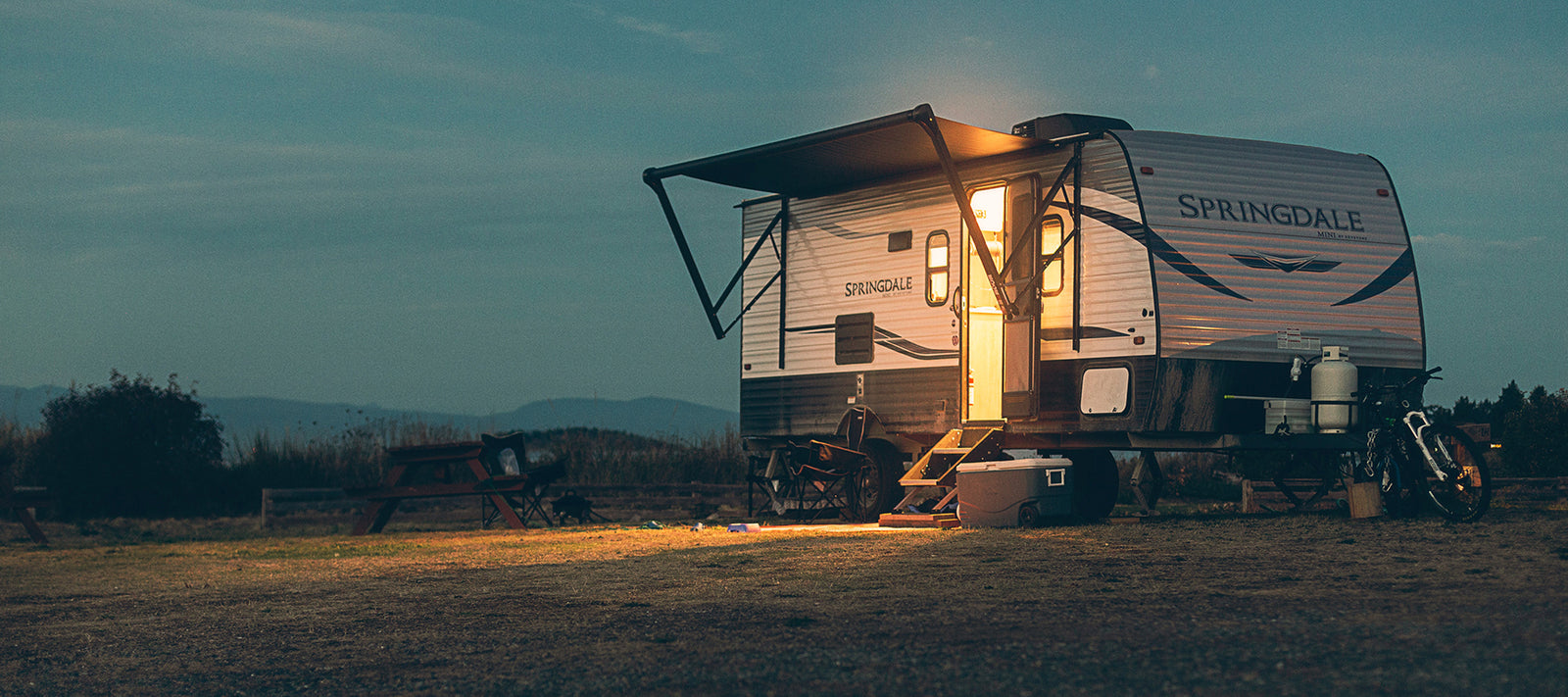Your Cart is Empty
August 11, 2022 4 min read
We have made it, achieved expert status with tent camping. What is next? How can we make our camping experience even better? Truck bed camping, travel trailer, campervan, camper, pop-up, teardrop or RV or is a tent the best? At HEST, we want to share the benefits and the disadvantages of all camping set-ups because we would like to say we have seen them all.
To kick it off, here are our pros and cons of owning a tow-behind camper to camp.
PROS
CONS
Anyone knows that weather can show up at any time. If it’s heat, snow or wind it will show up and try to ruin your night. A huge plus to a camping camper is that it’s weatherproof. A shelter to protect you from the elements. Not just helping you stay dry from the rain, most campers have a heater to warm you up in the middle of the night and some also have an AC unit to cool you down after a hot day in the sun.
At HEST we have a saying “But can you make a cup of coffee?”. The test is, in your camping set-up, is it easy to make your morning coffee? Do you need to go outside in the cold or rain and start up your JetBoil FlashSystem? Or can you roll out of bed and make the coffee without leaving your space? If it wasn’t clear already you can make your cup of coffee in your camper without leaving the inside comforts. Bonus Pro is that you also have a dry seat in a camper.
Beds in a camper are typically elevated off of the ground. Compared to tent camping this is a plus because you can easily get in and out of bed rather than bending down to get to bed. Pro Tip: Most campers come with cushions that transform from seats into a bed to sleep on. Consider using a HEST Dually or HEST Foamy (depending on the bed size) on top of the cushions (or in replacement of) to elevate your overall comfort level.
A standard camper has low clearance as well as the length which will hold you back from going far up that class four dirt road. This limits the freedom of where you can park for the night. If you are a big BLM or off the beaten path camper we would recommend finding a camper with a high clearance build to help increase your distance up the roads.
You will need to practice towing if you have no experience before. Backing up is the hardest. We recommend bringing your camper to your local grocery store parking lot to practice backing up before attempting to land it in a camp site. Other education includes hooking the camper up to your hitch, what hitch works best for you to be level, testing the emergency brake system as well as making sure your electrical hook-up fits.
We would think this was obvious ,but need to point it out. Towing any large amount of weight will increase your energy to drive, hence burning gas. Be aware of the dry weight of the camper you have in-mind because the lighter the better with burning gas in transit.
